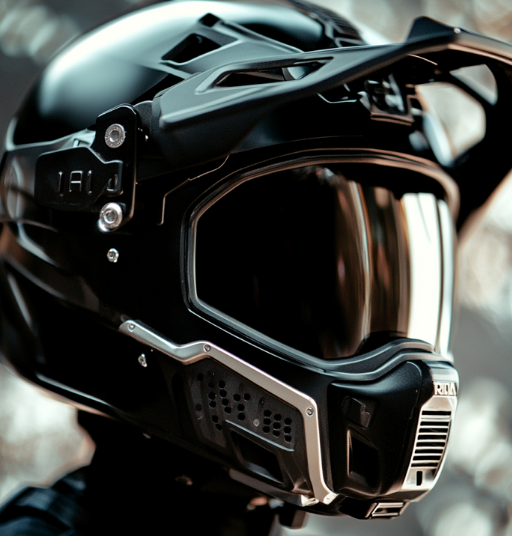Exploring the Versatility of Helmet Cameras
Helmet cameras have become indispensable tools for adventurers and safety enthusiasts alike, offering a unique perspective during activities such as cycling, motorcycling, and extreme sports. The advancements in camera technology have significantly enhanced their functionality, providing users with innovative features that catch every moment in the best quality possible.
Innovative Features and Models to Consider
Among the leading models, the Techalogic DC-1 Helmet Camera stands out due to its dual lens capability. This feature allows simultaneous recording from the front and back, making it ideal for capturing comprehensive footage, especially in scenarios requiring evidence post-incident. Complementing this is its video quality, offering up to QHD (2K) resolution, sufficient for reading car number plates, ensuring every detail is captured with precision.
Many helmet cameras provide versatile mounting options, suitable for various helmets and activities. The Techalogic DC-1, for example, incorporates GoPro standard fixings alongside Velcro straps and elastic bands. Such versatility ensures easy installation and adaptation, fostering greater accessibility for users seeking both action and safety documentation in their journeys.
Battery Life and Connectivity: Keeping the Camera Rolling
Battery life is a crucial consideration, as it directly impacts the duration of capture. The Techalogic DC-1 offers approximately 2.5 hours of life at 1080P with dual cameras active. However, options like the DJI action camera boast up to 4 hours of life in optimal conditions. Such variations allow users to select a camera based on activity length and intensity.
Connectivity features further enhance camera usability, with models such as the GoPro Hero 12 Black incorporating Wi-Fi and Bluetooth. These enable control via smartphone apps and even voice commands. Additionally, touchscreen interfaces provide intuitive control, ensuring users can focus on the action rather than complex settings.
Delivering Stability and Quality in All Conditions
Image stabilization remains a paramount feature, assuring smooth and stable footage regardless of movement. Cameras like the GoPro Hero 12 Black and Cambox V4 Pro employ cutting-edge stabilization technology, combining hardware and software solutions to eliminate shake and maintain clarity.
Furthermore, the field of view plays a significant role in capturing expansive scenery, with the GoPro Hero 12 Black offering a remarkable 177 degrees, and the Cambox V4 Pro providing a 150° wide-angle lens. These specifications equip users to produce richly immersive and engaging content, irrespective of the environment.
Performance in Challenging Light Conditions
Not all adventures occur under perfect lighting, making low light performance a vital feature for helmet cameras. Options such as the DJI action camera and Sony RX0 II are designed with larger image sensors to excel in dim conditions, ensuring that users never miss a moment, even when daylight wanes.
Complementary to these features are additional capabilities like livestreaming at 1080p, cloud upload functionalities, and pre-recording options like the Hindsight feature on the GoPro Hero 12 Black. Each of these innovations contributes to a holistic and user-friendly experience that meets the demands of today’s action enthusiasts.
Considerations for Safety and Ergonomic Use
The Cambox V4 Pro exemplifies ergonomic design, weighing only 70g, and comes with a unique mounting system that conforms to any helmet or visor shape. Such attributes ensure comfort, reduce strain during prolonged use, and enhance safety by minimizing distraction and bulk.
In summary, helmet cameras have transcended their traditional roles, evolving into versatile and powerful tools capable of capturing high-quality footage in any scenario. Whether for safety, documentation, or personal enjoyment, selecting the right camera depends on balancing features with specific needs and preferences.


